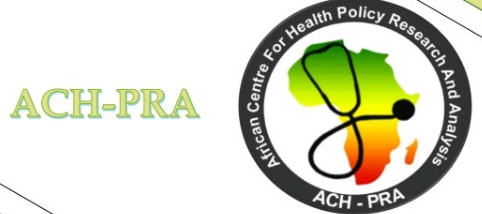The opposition National Democratic Congress (NDC) says it agrees with reasons adduced by the African Center for Health Policy Research and Analysis (ACH-PRA) on why Ghana does not need drone medical supplies in the country at this time.
National Communications officer of the NDC, Sammy Gyamfi who referred Ghanaians who are yet to be convinced about the fact that the drones medical supply deal was a bad one, said the think-tank has given all the justifiable reasons that should convince all Ghanaians that the move is indeed a misplaced priority.
He wrote ‘’for those who are yet to be convinced that the Ghana-Zipline vampire drone deal is a misplaced priority, this insightful piece by the African Center for Health Policy Research and Analysis (ACH-PRA) may be useful’’.
See below, the points adduced by the think-tank on why Ghana must reject the deal.
Why not drones?
- Among the top ten causes of death in Ghana, hemorrhage does not form part; hence such a choice of intervention by government is not efficient.
- The cause of deaths in most rural areas is hardly due to lack of blood and emergency drugs. This is partly because at this level of the health structure, the CHPS Compounds and community clinics are not qualified to prescribe them. Their duty is to refer all acutely ill patients to district hospitals where these products are supposed to be stocked 24/7. Their duty is to refer, but where those good roads and ambulances are nonexistent the patients suffer the consequences. Basically, the purpose of the CHP compound (the health facility in most remote villages) is to carry out primary healthcare activities (preventive medicine); hence blood transfusion and administration of emergency medicine is out of the equation at that level.
- To add to that, let us be reminded that we have levels of prescription in the various health facilities and this is done considering the caliber of professionals in each type of facility. These remote facilities are not allowed to prescribe drugs for resuscitation neither do they conduct transfusion of blood.
- Data available rather indicates that most deaths due to lack of blood and essential emergency drugs occur at district, regional and teaching hospitals. It therefore suggests that road network is not a major hindrance to availability of blood and drugs at these facilities. Instead, issues like lack of a blood donation culture by citizens, lack of storage facilities and unstable power supply may be responsible for this shortage.
- The ministry of health has two policies which when fully implemented, would go a long way to reduce these unwarranted mortalities government and citizens at large are worried about and as well as save Ghana from the drone adventure. We are talking about the: a). Referral Policy and Guidelines; and b). Policy and Guidelines for Hospital Accident and Emergency Services in Ghana. A major bridge between the rural communities and the district hospitals is the bad nature of the roads linking to those communities. This is coupled with serious cases of inadequate/lack of resources and poor staffing to manage critical cases at the district.
CONCLUSION
To ACH-PRA, the drone venture is quite a laughable one because it just cannot serve the purpose. The government of Ghana therefore needs a rethink through better alternatives that meet crucial priorities in the health sector. The health sector is one that does not require an ad-hoc knee-jerk solution but well thought through decisions that can stand the test of time. It is the opinion of ACH-PRA that this policy should not be implemented because the health sector of Ghana needs a more realer and long -lasting intervention that won’t end up being a waste of resources.
To the Government of Ghana and its Health Ministry, ACH-PRA would be glad if attempts are made to absorb unemployed trained health givers in the system to fill up gaps in the health care facilities of the nation. For example, the 617 bed Legon Hospital alone can provide employment to about 415 critical staff (90 doctors including specialists, about 300 nurses, 15 pharmacists, and 10 biomedical scientists) and this does not include auxiliary staff. In the abundance of water my people are thirsty.
In case of want of policies or projects featuring today’s technology for the health sector, ACH-PRA believes that a start- point of a simple computer software for bed management will be as good as a solution to the “developing no bed syndrome” in the country. Otherwise, there are some outstanding projects in the health sector that have not been completed and commissioned but have dully been initiated with taxpayers’ hard-earned monies by the previous government. Government can consider completing and commissioning them for use.
Write up: Drones in the Health sector of Ghana? A need for reconsideration, by the African Center for Health Policy Research and Analysis (ACH-PRA).
Source: BestNewsGH.com

